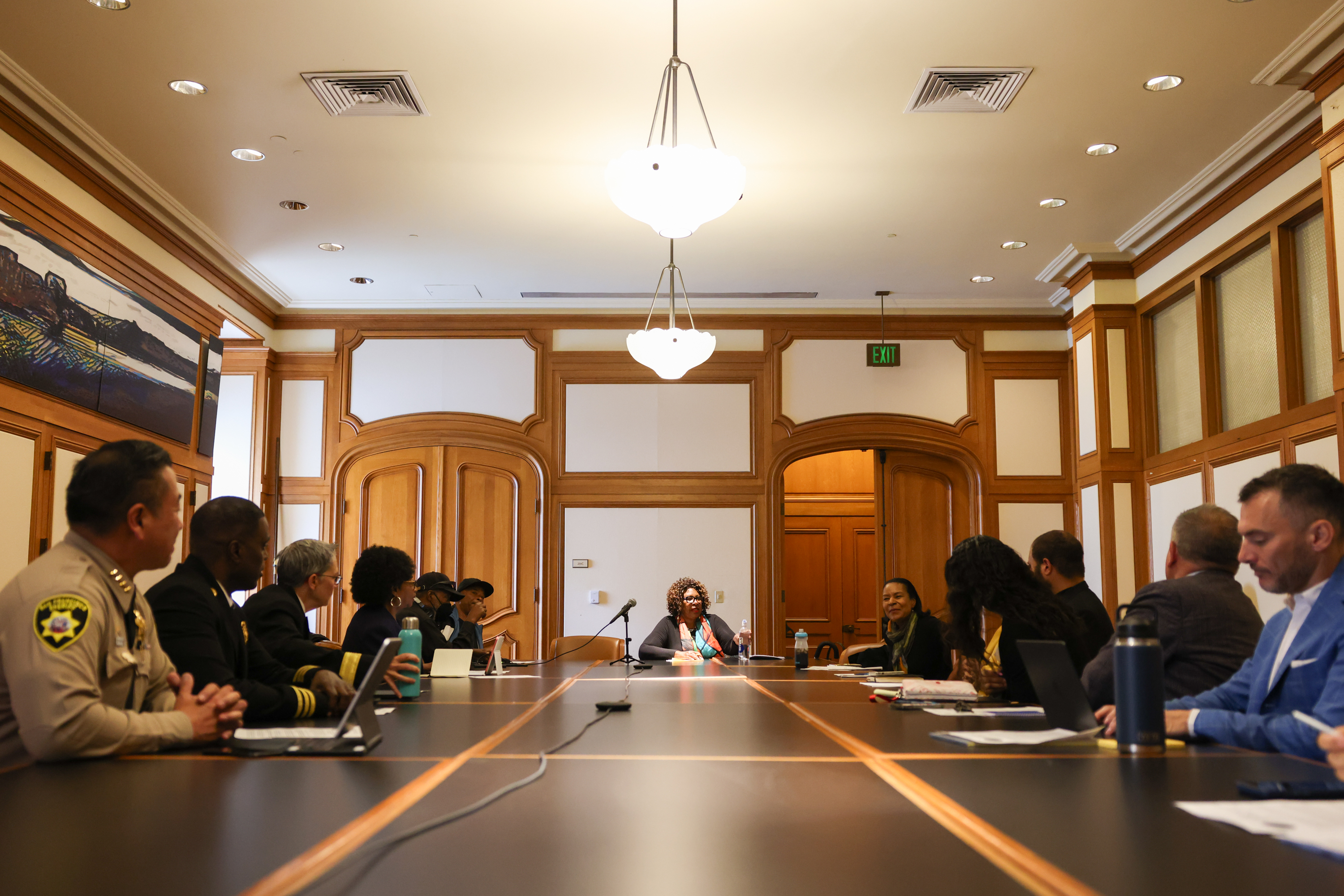Black leaders in San Francisco are calling on the city to include them in devising a plan to combat the fentanyl crisis that is disproportionately killing their community.
Though Black San Franciscans make up just 5.7% of the city’s population, they accounted for 33% of the city’s total 406 overdose deaths until the end of June, according to the most recent data.
In an effort to hold elected officials and city department heads accountable for that disparity, a group of Black leaders from local nonprofits have created an initiative dubbed the Healing the Village Collaborative.
The collaborative held its first meeting in the mayor’s conference room on Thursday morning, bringing together Supervisor Matt Dorsey, District Attorney Brooke Jenkins, police Chief Bill Scott, fire Chief Jeanine Nicholson, Sheriff Paul Miyamoto, Director of Population Behavioral Health Jefferey Hom and director of Overdose Prevention Eileen Loughran. An aide for Supervisor Dean Preston was also in attendance.
Led by longtime activist Phelicia Jones, the collaborative demanded more investments in abstinence-based programs and more transparency in the city’s contracting process.
“You always want to give us crumbs. Is it that you don’t trust us with the money?” Jones asked. “We cannot continue to be left out in the cold.”
Representatives from the collaborative at the inaugural meeting—including director of SF Recovery Theatre Geoffrey Grier, executive director of the Homeless Children’s Network April Silas and executive director of Westside Community Services Mary Ann Jones, among others—said the city’s contracting process often puts Black-run organizations at a disadvantage.
Silas described the challenges of competing for contracts against organizations with the resources to hire grant writers and expressed concerns that the department’s solicitations aren’t designed by Black people.
As an example, Silas pointed to a recent Department of Public Health contract solicitation that was created under the premise of reducing overdose deaths in the Black community. Silas and others said the contract request is unusually complicated and doesn’t read as if it’s made to address the needs of Black people.
“Put us in the conversation upstream,” Silas said. “They’re saying blackness, but they’re not about blackness.”
Jenkins echoed the group’s sentiment, saying she also feels the concerns of Black people are often represented by people who aren’t Black.
“We want to be able to speak for ourselves,” Jenkins said. “I’m always hearing what others believe is best for us.”
The group said the city needs more sober-living programs and a better-coordinated effort to disrupt visible drug use and sales and guide people into treatment.
Grier said it’s important for the city to find ways to intervene without criminalizing addiction.
“The first thing is, you’ve got to make it hard for a dope fiend to get their dope,” Grier said. “That doesn’t mean you’ve got to be rolling around with the police and shooting up everybody.”
On May 30, San Francisco police began arresting and citing people for public intoxication, in some cases jailing people for four to five hours. However, the program has yet to show success in convincing those people to enter treatment.
Representatives from the health department at the meeting, Hom and Loughran, said they would take the collaborative’s concerns into consideration.
The group said it plans to meet monthly until members feel their concerns have been addressed.
